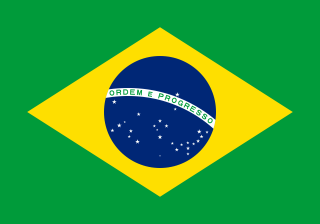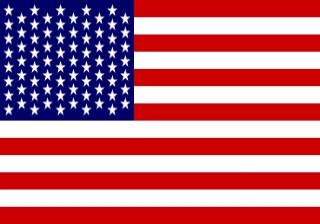Policies
- Focus and Scope
- Research Lines
- Peer Review Process
- Periodicity
- Free-access Policy
- Indices
- Rating Qualis CAPES
- Governance Policy
Focus and Scope
Revista de Gestão e Negócios do Esporte - RGNE is focused on the production and dissemination of knowledge pertaining to the various and several areas of Sports Management, including managerial actions in the different sports expressions (educational, developmental, and related to participation and performance), in addition to themes related to the universe of Business and Management of the Sports World in its various activities.
Mission
Revista de Gestão e Negócios do Esporte - RGNE has the mission of fostering, through a world-class publication that promotes studies combining scientific knowledge and practical contribution, the rapprochement of the academic production and the practice of Sports management, policies, administration and the Sports Business market.
Goals
Foster the scientific/academic/professional advancement of the activity through the publication of high-quality studies and research and new knowledge, successful experiments and capabilities in the area.
Raise the interest and positive debate throughout the professional and academic environment of Sports Management and Business, within the scope of Sports Organizations and Institutions offering sports practices, in the public sector, in the private sector, in the media, at the three levels of government and in other segments or sectors that, somehow, are related to the area.
Target Audience
Revista de Gestão e Negócios do Esporte - RGNE is geared at an audience of highly-qualified researchers, professors, students and decision-makers who work in the area of Sports Management, Public Policies and Management of public, private and third-sector Sports Organizations, national and international.
Research Lines
Revista de Gestão e Negócios do Esporte - RGNE publishes articles about studies, research and summaries of books by national and foreign authors.
RGNE has a wide-reaching editorial line, but all articles will always be related to Sport and its various expressions, to its industry and, mostly, to its management, including areas such as Management and Administration (in all sub-areas), Public Policies, Governance, Communication, Economics, Accounting, Law, Politics, Journalism, amongst others.
RGNE covers themes in the following areas:
- Management and Administration Models and Practices in Sports Organizations and Institutions offering sports practices;
- Sports-related Public Policies and Governance;
- The Sports Industry and Macro-environment;
- Management of Sporting Events, Arenas and Facilities;
- Sports-related Investments, Business Partnerships, Sponsorship, Advertising, Communication and Media;
- Education, Training and Development of professionals related to their roles in Sports Management.
Examples of possible themes for papers:
- Strategy, governance, power and organizational behavior within Organizations and Institutions;
- Management of marketing and behavior of sports consumers;
- Financial Management, accounting and audits within Organizations and Institutions;
- Management of personnel within Organizations and Institutions;
- Organization of the Sports System;
- Sports-related economics, legislation and public policies and governance;
- Management of sporting events, arenas and venues (strategic and operational);
- Planning, management and legacy of mega sporting events;
- Sports-related investments, business partnerships and sponsorship;
- Sports media and their relationship to sport;
- Successful case studies in Sports Management.
Peer Review Process
All articles submitted to publication will be initially checked by the Editor, along with one member of the Scientific Editorial Team, for: uniqueness, fitness for RGNE’s editorial lines, formatting, adopted methodology, quality and wording.
If the articles are deemed unfit, they will be returned to the author without undergoing review.
If they are found fitting, they will be submitted to evaluation by two reviewers, in blind review system. The reviewers will evaluate the paper in terms of:
- Contemporaneity of the subject - The theme or subject approached must be relevant to the research area;
- Clarity of purpose - There should be no question about what the core element in the article is;
- Methodological suitability - The adopted methodology must be suitable to the research problem;
- Methodological correctness - Correct application of the adopted methodology;
- Clarity of development - Proper integration of goals, theories, methodologies, results and conclusions;
- Analyses and results - Form of presentation and discussion of analyses and results;
- Conclusions - Foundation and correctness against the goal(s) and achieved results;
- Research limitations and suggestions for new research - Presentation of the research limitations and restrictions and suggestions for new studies on the theme;
- Compliance with the editorial norms of scientific publications set by the American Psychological Association (APA) - 6th ed.;
- Wording - Suitability, correctness, clarity and objectivity.
Following evaluation of the articles by the Referees, the articles recommended for publication will undergo the following reviews:
- By the authors, to review the adjustments recommended by the reviewers;
- By RGNE’s editorial team, to review the normalization, with the Portuguese language, with the English language, and the article’s final format.
Periodicity
As of 2018, the Revista de Gestão e Negócios do Esporte (RGNE) continued to be semi-annual, although it was published in January (January-June) and December (July-December).
The Revista de Gestão e Negócios do Esporte (RGNE) is published every six months, with publication in May and November of each year. The graphical presentation of the RGNE is based on the standards of the American Psychological Association (APA) Handbook, a guide to standardizing the production of foreign scientific histories and widely used internationally.
Free-access Policy
This magazine offers instant and free access to its content, pursuant to the principle that offering the general audience with free access to scientific knowledge promotes greater democratization of knowledge, globally.
Rating Qualis CAPES

Governance Policy – RGNE
Role of the members of the Editorial Policy of Revista de Gestão e Negócios do Esporte (RGNE)
In compliance with Manual de Boas Práticas da Publicação Científica, a manual designed to authors, referees, editors and members of Editorial Teams (in this instance, the Manual of Good Practices published by Anpad), this periodical adopts two collective instances: the Editorial Council and the Technical-scientific Committee. RGNE also relies on the operational work of its Editorial Coordination and of a qualified group of Referees/Reviewers/Proofreaders.
Editor
Responsible for setting the Editorial Policy, for the Editorial Management and for supervising the Editorial Coordination that operates the whole workflow. The Editor works specifically on the preliminary selection of articles submitted to the magazine and on their distribution to the referees who will evaluate them. If the articles present the expected quality, they will be published. In addition, the Editor must participate actively in the works of the Scientific Committee and in the articulation of the actions by the Editorial Council.
Associate Editor
Assists the Editor in all duties related to RGNE’s Editorial Policy.
International Associate Editor
Assists the Editor and the Associate Editor in all duties related to RGNE’s Editorial Policy, promotes the periodical in the international community and encourages the submission of articles by international authors.
Editorial Council
Formed by the Editors and Counselors who represent properly and democratically the interests of the area of knowledge, of the institutions that ensure the scientific credibility of the periodical, and of those who legally support it, amongst others.
The Editorial Council is formed by academic representatives from different education and research institutions. Its members work preferably, but not exclusively, in the area of Sports Management, in addition to fields related to the universe of business and management of the sports world in its various activities. The Editorial Council does not necessarily develop its activities collectively.
The Council deals with the magazine’s editorial policy issues and acts as a group (holds meetings, whether or not in person), making decisions collectively and, on occasion, voting on subjects; the Council has no involvement with the content of any one issue or article in particular, but rather with the collection as a whole, setting the general guidelines that steer it.
Each member acts literally as a counselor, interpreting and suggesting improvements in the Editorial Policy, promoting the magazine, and acting as an arbiter in strategic issues related to RGNE’s involvement with the academia, and professional spheres.
The Editorial Council does not supervise or interfere with the editorial process, and is uninvolved in the article evaluation process. The Editorial Council expresses its opinions on subjects that are relevant, such as the consistency of the editorial policy and the publications, their quality, and also on ethical issues pertaining to the editorial management.
Each member also plays the role of “Ombudsman” for the scientific community in their area, ensuring the academic credibility and posture expected from a scientific magazine.
Scientific Committee
An inter-institutional collegiate, formed by representatives of the research groups directly supporting the development of the magazine, whether for their scientific or technical production. They work as a collegiate group, issuing collective and democratic decisions.
The group’s primary mission is to ensure credibility of the editorial procedures followed, and they have scientific responsibility for the magazine. Their attributions are of a scientific nature, as to ensure the Magazine’s mission is fulfilled.
The Scientific Committee must be ever active in the fulfillment of the general definitions in the magazine’s editorial policy, and also of the established editorial procedures, particularly concerning the assurance of consistency and quality in the publications. Special issues and other scientific contributions shall be discussed and defined by this Committee. It is the Committee’s attribution to discuss and develop specific rules for various subjects, such as: article norms and formatting; evaluation criteria and acceptance of papers for publication; acceptance of new research groups into the committee; budget approval; accreditation of proofreaders and referees; definition of the circulation policy, amongst others. The Scientific Committee does not interfere with RGNE’s editorial operation, which is the Editor’s responsibility, along with the operational team. Some of the members in the Scientific Committee also act in the Technical Committee, as to ensure the production of the Magazine also contributes with an improvement in the management practices of sports organizations, and fosters the production of papers and research related to the field of “research and development”.
It is worth noting the Scientific Committee assists with the issuance of expert opinions, inasmuch as the Editorial Council may be summoned for the decisive evaluation in certain cases.
Editorial Coordination
Responsible for the operationalization of the Magazine, for the receipt and distribution of articles, and for all contact with Editors, Referees and Authors, as well as for the finishing of the issues to be published.
Referees/Reviewers/Proofreaders
Next, some specific recommendations to Referees/Reviewers/Proofreaders are listed, in compliance with Manual de Boas Práticas da Publicação Científica:
- A referee shall not accept the task of reviewing a manuscript if he/she does not feel professionally qualified in the respective area/subject matter;
- In a double blind review process, a referee shall inform the editor in case the referee knows the identity of the author. Concerning the associate editors and members of the Scientific Editorial Team, although they are not explicitly informed who the authors are, they might on occasion come to recognize them from the style or content of the article in itself; nonetheless, such identification shall not preclude them from moving forward with the acceptance review process (desk review) and from the referral of possible referees;
- Each periodical sets the deadline for turnaround by referees, and referees must explicitly pledge to meet such deadlines or negotiate their alteration. Meeting the agreed-upon turnaround deadline is a question of ethics, respect and responsibility in a referee’s attribution;
- Referees shall read the editorial policy and the instructions issued to the periodical’s referees carefully, as the editors may set guidelines referees may not be familiar with or with which they do not fully agree; so there will be risk they may request alterations that are not compatible with what the periodical has prescribed;
- As to gain a general first impression of the article, referees are advised to perform a deep read in a single session. At times, some points may be highlighted or noted in this first read, yet the purpose is to grasp the whole, without focusing on specifics. It is also advisable to resume work after three or four days have elapsed, going over the copy carefully while simultaneously drafting their expert opinion;
- Referees must be mindful of the fact that differences in paradigm may affect their decision about the quality of a manuscript and conscientiously prevent that from happening;
- Referees must point out all corrigible flaws and necessarily indicate what might be done to solve them. A good referee, nonetheless, will afford authors the flexibility that will allow them to continue writing the article they intend to write. Referees must, at all times, assess the value of each requested alteration in terms of the actual improvement to the quality of the manuscript;
- Whenever scientifically pertinent, referees should suggest to authors relevant references for the manuscript and/or its reformulation;
- Referees must make all efforts to indicate all alterations deemed pertinent in their first review of the manuscript, as to avoid new recommendations every time an article is returned following a reformulation;
- When receiving a manuscript an author has reformulated based on the recommendations issued by themselves, or other referees and editors, referees must be mindful of the recommendations issued by the other referees prior to issuing a new expert opinion;
- If the manuscript contains incorrigible flaws, referees must assess the possibility of pointing them out as limitations of the article, in the proper section. Should that not prove possible, referees shall recommend the article be rejected, explaining the reason that makes any flaws incorrigible;
- Whenever recommending the rejection of a manuscript, referees must explain very objectively and clearly the rationale to such rejection.








